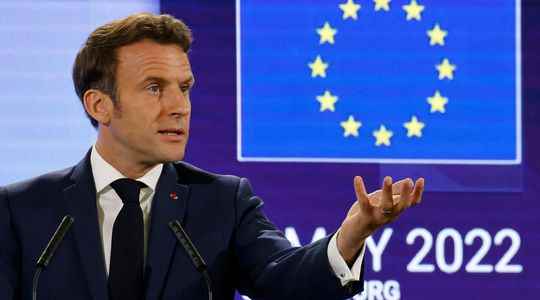On the evening of April 24, 2022, the day of his re-election, President Emmanuel Macron announced his intention to make France a “great ecological nation”. A slightly saddened mind will quickly notice that this reference to the “great nation” could only have germinated in the mind of a teasing Germanophile. Because, dear French readers, know that, among our German neighbors, the term refers to an unflattering image of our country. This is how the German press qualifies our country when it wants to portray a pompous, centralizing, arrogant, even pretentious France.
Cornerstone of these resolutions, the “ecological planning”, announced a few days earlier in Marseille, should lead to a programming of investments – 50 billion euros – “sector by sector, territory by territory”. Nods to the left of government oblige, this planning smells good of the Democratic and Social Republic of 1946 and the first Modernization and equipment plan for France, published in January 1947 by Jean Monnet. Some measures are presented in Emmanuel Macron’s program in the form of a catalog such as the renovation of buildings, the increase in the supply of clean transport, the acceleration of the deployment of nuclear and renewable energies, etc.
Everything is there… except the essential. Where are the breath, the desire, the ambition that project towards the future? The double reference to a past that is both glorious and difficult lacks momentum. We will search in vain, in the candidate’s program dedicated to ecology, for the words “innovation”, “research and development” or “digital”. One will also look in vain for a reference to the outside world except for an agreed allusion to “multilateralism”, as well as a reference to the carbon tax and protection against imports of low environmental quality.
Where is the program for the future?
Spreading the good ecological word is noble. Bringing out companies, technologies and specialized scientists is better. Because no, the energy transition will not take place “all other things being equal”. Tesla has already announced that it is manufacturing half of its electric batteries without nickel or cobalt, at a time when the price of raw materials is skyrocketing on world markets. We made fun of the start-up nation, candidate Macron’s flagship vision on the eve of his election in 2017. At least this slogan drew the outlines of an unprecedented project that placed France in the 21st century and in a global movement. Perhaps it would be useful to make him meet the “great ecological nation” and to marry them… Similarly, where is the program of investments for the future, of this France 2030 which invests massively in the technologies of tomorrow?
Unfinished program? Without a doubt. What is lacking above all in order to judge the effectiveness of the setting to music of these messy and competing scores is the appointment of the conductor. Since Emmanuel Macron’s program is steeped in it, let’s go back to history. In 1946, the restoration of the greatness of France and its restarting through the Plan were the work of an unlikely duo, whose relations were historically marked by frank hostility: General de Gaulle and Jean Monnet. We have our de Gaulle – that of 1946 at the very least – but who will be the Jean Monnet of the transition? Because the “five-legged sheep” existed: a local man, from a family of cognac merchants (with and without capital letters), Jean Monnet was also a banker and senior international civil servant.
Already present in the project of League of Nations in the 1920s, it will be, three decades later, one of the architects of Europe after having meanwhile been a pillar of transatlantic relations. Jean Monnet was a pragmatist who knew the world, as the reading of his famous 1947 plan shows. He knew how to rub France into reality. Let’s hope that Emmanuel Macron will be able to remember it. If the great ecological nation really has pretensions to the universal, it would do well to leave our frank Malthuses where they are: in the comfortable and cramped world of eternal certainties and revealed truths. Otherwise, it will be neither big nor a nation and even less ecological, but a small dependent country proud of its past.
